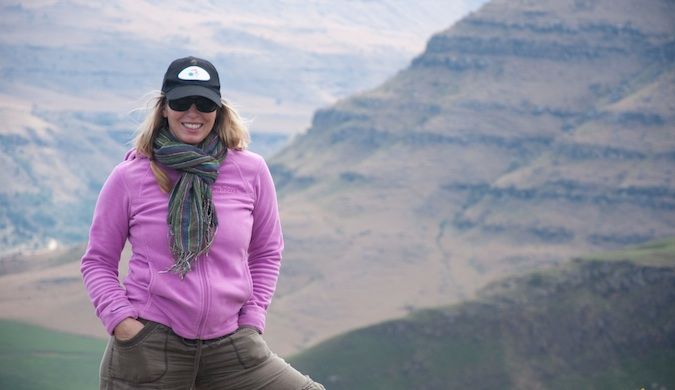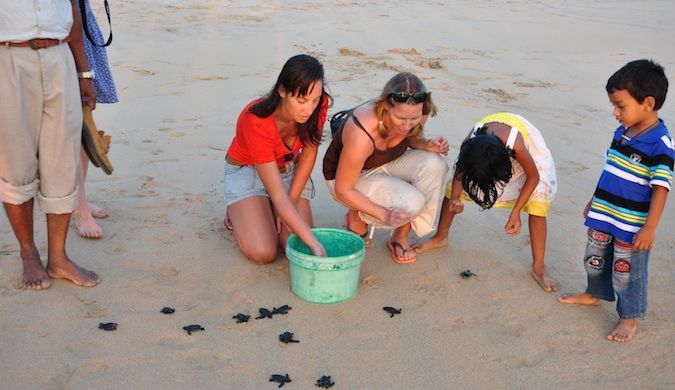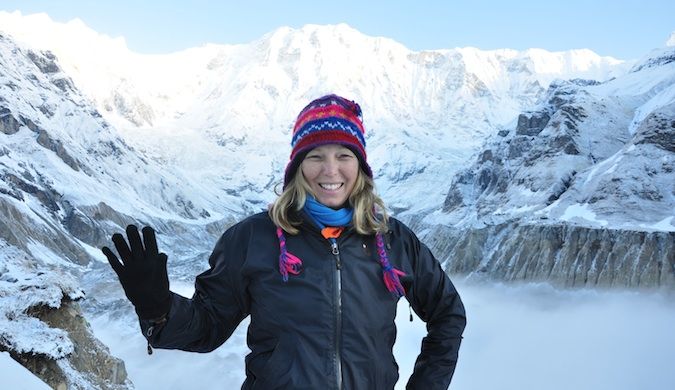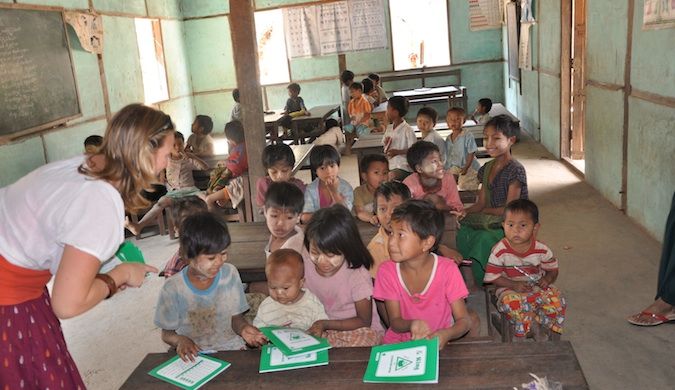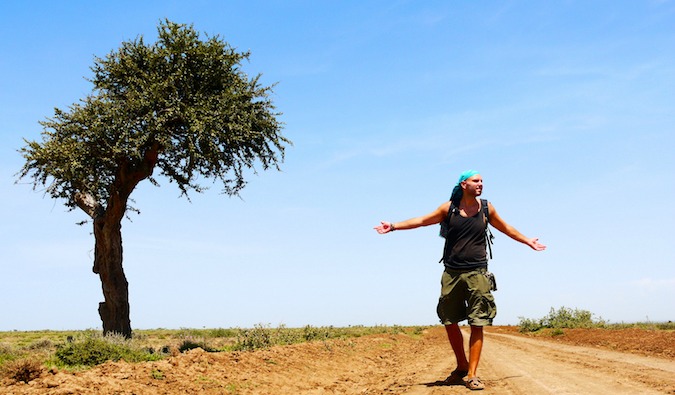
After my first independent trip overseas in 2005, I came home, quit my job, and prepared to travel the world. However, at home, I immediately felt alone. Few people supported me, most were confused by the idea, and even more tried to talk me out of it. Back then, quitting your job to travel the world made people think you were slightly crazy. Over a year ago, I created a community section of this site for us to mingle with, encourage, and advise each other so no one would have to feel that way. I wanted a place where people could turn to for support. Today we have over 3,300 members and over 10,000 posts!
Each month, we highlight one or two members on the forum. Today, I want to share with everyone who might not read the forums the story of one of our most active community members, Tomislav from Croatia. Tom has been traveling the world on an extreme budget ($10 USD a day) since 2008 through a variety of ingenious ways. While this level of austerity is not for everyone (including me), his spirit and philosophy is still amazing and I wanted to share it with you. Without further ado, here’s our interview:
Nomadic Matt: Tell everyone about yourself.
Tomislav: My name is Tomislav Perko, I’m 30, and I come from Croatia. I started living my life only recently, by moving away from the usual “be born – go to school – get married – do the job that you don’t like – take credit out for 30 years – have a few kids – retire – and die” lifestyle. Recently, I published a book called 1,000 Days of Spring, which quickly turned into a bestseller in Croatia, and currently I’m back home, working on my second book.
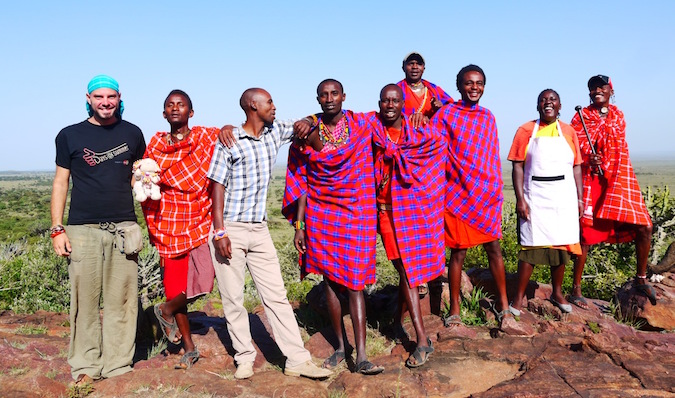
You said you started traveling recently. What were you doing before? Why did you start traveling?
Before I started traveling, I was a stockbroker. Suit, tie, nice restaurants, a lot of money — that kind of lifestyle. But then the financial crisis came, and I lost everything. That’s when I discovered Couchsurfing — and by hearing first-hand stories from people that passed through my home and seeing a spark in their eyes, I thought to myself, maybe I should try it out myself.
And I did.
Did you always plan to travel on $10 USD a day?
The only thing that is a constant when talking about my travel plans is that I didn’t really plan anything. When I started traveling, I had almost no money, and the amount I spent on the road determined how long could I stay on the road. $10 USD was more than enough to cover some basic needs, and the best thing was that I really enjoyed traveling this way. I loved the challenge of figuring out where to sleep, how to get somewhere, what to eat.
In a way, being almost broke was the best thing that happened to me. While traveling on a low budget you appreciate the little things, such as hot meals, soft beds, and transportation, after a few hours of waiting in the sun. You are grateful for little things you are not thinking about when you can afford three meals a day, when your shelter has already been prearranged and you know a way to get to your destination. You are grateful for all the miracles that, inevitably, occur daily.
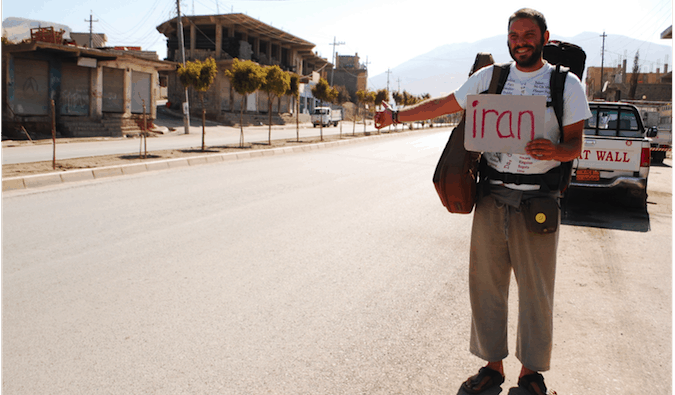
Where did you get the $10 USD figure? Did you research it? Why $10 USD and not $20 USD?
Well, I didn’t plan it to be $10 USD or any other amount, but when I traveled for a couple of months, looked back on my budget and did the calculation — it turned out that it was about that amount per day.
Of course, some days I spent $50 USD, or bought a plane ticket for $100+ USD, but then I spent few weeks or months volunteering and not having to spend anything. So at the end, it all levels out to $10 USD a day.
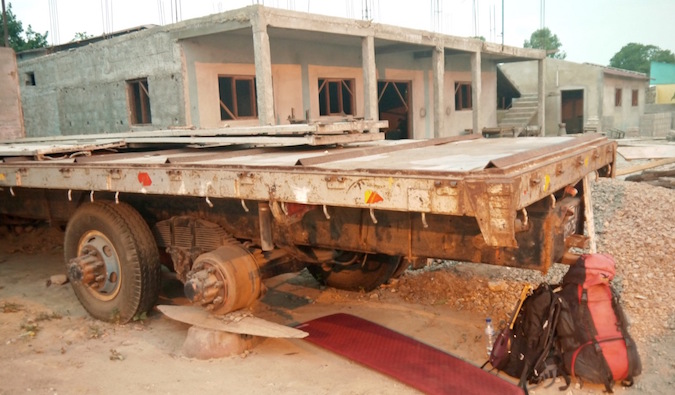
How do you specifically stay on budget when you travel?
When it comes to transportation, I mainly hitchhiked everywhere I went. It was fast, safe, reliable, and free. But the best thing was that you get an amazing story of how you got between point A and B, you talk with locals, and learn from them. I also walked a lot, used some public transportation in cheap countries, relocated a few cars, etc.
As for accommodation, I Couchsurfed most of the time — I already had plenty of experience from hosting few hundred people in my own place before I started traveling, so that helped a lot. You spend your time with him/her, they take you out with their friends, on family gatherings, and to see some amazing local spots you would probably miss out on.
When I didn’t Couchsurf, I camped, slept in parks or beside the road, volunteered, tried house sitting and home exchanges — there are so many alternatives to ho(s)tels. They require much more planning and energy, but they save you money and give you so much in return.
I bought food in supermarkets and cooked by myself or with my hosts, never drank in bars but in parks, even tried dumpster diving couple of times. You have to know that food is everywhere, and a lot of it is being thrown away — some say that over 40% of food produced is being thrown away. You just have to figure out a way to get to that food before they throw it. If that means standing in front of a pizza place in Machu Picchu and waiting for some folks to leave the table and leave few slices untouched — then you do that.
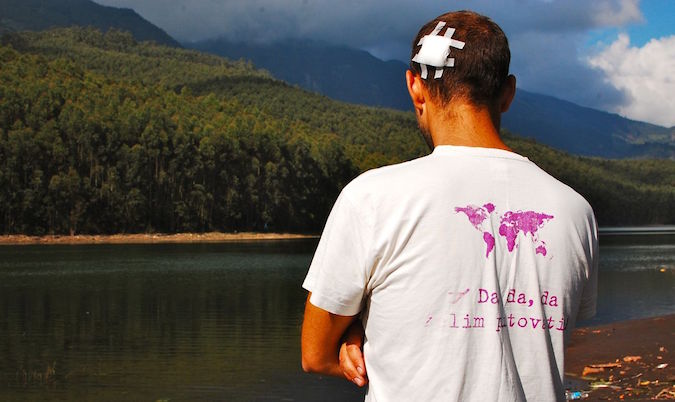
Is this a good idea? I mean, $10 USD a day is pretty cheap, and it’s not something I would do. It means you can’t walk into the Louvre, dine on good food in Italy, take a boat tour, or sign up for a jungle hike.
First of all, this type of traveling isn’t for everyone. I tried it, and I liked it. The thing is, I never traveled for the sake of seeing things. I was more into experiencing. So, instead of seeing the Louvre, eating in amazing restaurants in Italy, taking a boat tour, or going on a jungle hike, I was interested in talking with people, learning from them, and trying to live as a local. For that, you don’t need a lot of money.
Don’t get me wrong — it is more challenging and more limiting, but challenges and limitations are the things that push you into being in the moment, and doing everything in your power to get to something. That’s what I loved the most!
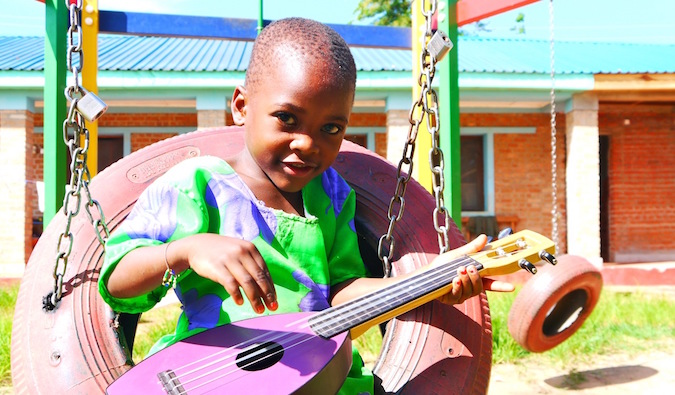
Have you worked or volunteered abroad?
I worked on a permaculture farm under the Himalayas, managed a guesthouse in Malawi, spent time in few orphanages, cleaned rooms and took care of 5 dogs and 14 cats in Ecuador. Volunteering is a great way to save money, take a break, and — what’s most important — learn about the place you are visiting and connect with people living there.
Mostly I found these volunteering opportunities on the spot, or I used WorkAway.
And when it comes to finding work, I sometimes (badly) played the guitar on the streets, or connected with people and asked them if they knew anyone that needs someone capable of working various jobs.
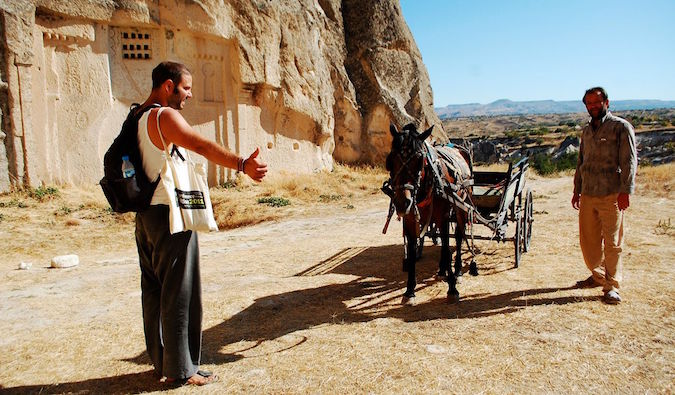
You seem like an adventurous guy. Tell us some crazy situations that you’ve run into on the road.
I would say these are my top three:
The craziest story is not from the road, but from the sea. I hitchhiked on a 13-meter yacht from Australia to Africa, without any sailing experience. It was probably the most and least adventurous journey I was ever on — the most when I talk about it now, after it happened, and the least when I was sailing for those 45 days. Nothing happening, just four of us on that small boat, sea and sky around us. Nothing else.
Then there was spending three days on the border of Iran and Pakistan with Iranian military officers, ending up staying in some dental laboratory with guys smoking opium all day long, crossing the border and being put in the bus with an armed escort and driven for 43 hours until reaching the capital, Islamabad.
And there was also driving all day long from Swaziland to north of Mozambique, singing with my driver to keep him awake, ending up in some small town where everyone is out in the middle of the night drinking, and spending the night under some old truck in my sleeping bag because it was raining.
Give us your most unique money-saving tip.
The Internet is your friend. There are so many ways to save money, and they are just a few clicks away. Find volunteering opportunities; accommodation via Couchsurfing, house sitting, or home exchanges; transportation via ride-sharing, car relocating, or boat hitchhiking… and realize that every dollar less spent is worth a few more days on the road.
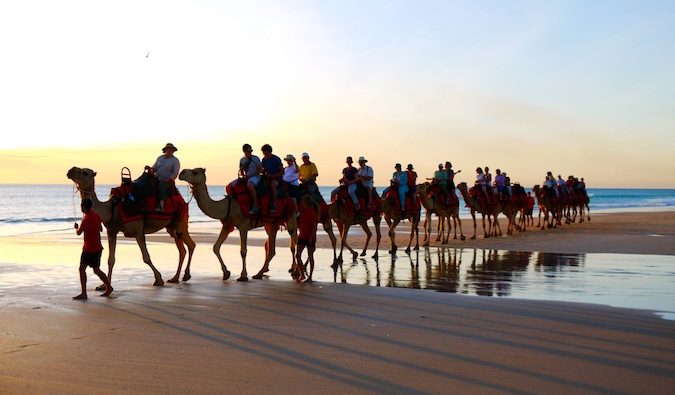
All this seems like a lot of work. How much time did you spend arranging accommodation, finding rides, work shares, etc.?
A lot.
I repeat: traveling isn’t necessarily a vacation. Traveling, especially in this way, is a lot of work. People think doing this is just cocktails on some beautiful sandy beach, but the truth is sometimes quite the opposite — you are lonely, hungry, or sick, and you have to deal with it.
Same with looking for transportation, accommodation, and food. It’s easy to check the bus schedule and go to the terminal, but it can be hard to get out of the city to find a good hitchhiking spot, wait there for hours, talk with many drivers, look for Couchsurfing hosts, choose them wisely, find their homes in strange cities, etc.
It is a lot of work, no doubt about that. But, that work pays off. It definitely does. Every single day.
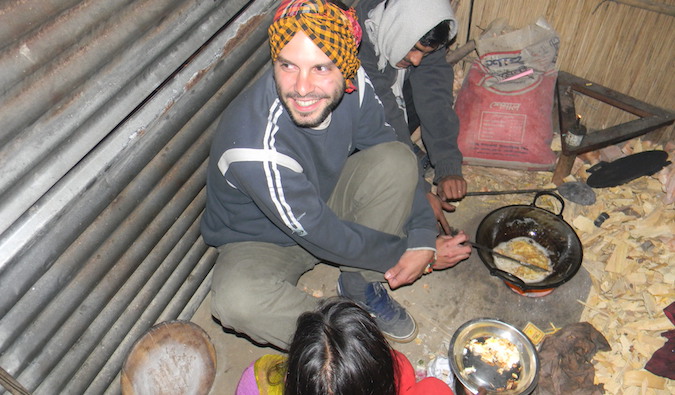
Do your family and friends support your travels? Did they always?
They do now, after many years, but it wasn’t always like that. I had to deal with the usual issues of my parents being worried, thinking I’m not using my life properly, etc. But with years they got used to it. I emailed my mum every day, no matter where I was (except from the Indian Ocean), we talk on Skype often, and when they saw me making a living out of my travels, being in the media, giving lectures to hundreds of people, they realized that this is my way, and now they are big supporters for me traveling.
But I know its still hard for them; it must be when your child goes away, especially when he/she wants to hitchhike and sleep beside the road. But in the end, they have to, or they should, understand your urge to explore and your path to happiness.
What advice would you give to new travelers?
Traveling is not the best thing in the world. It won’t solve all your problems; you can be lonely, hungry, freezing in your sleeping bag. It’s not something you have to do.
But if you want to, if you feel that desire to head into the unknown, then you have to know that it’s possible. I won’t say it’s easy, because you have to adjust your lifestyle to the road, but it can and will be rewarding, no matter what.
If I did it, I think anyone can.
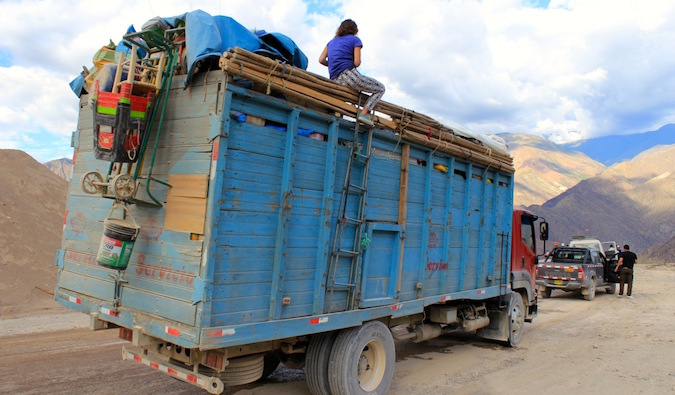
Some quick questions: Window or aisle?
Aisle till I die!
Even though, I don’t really like airplanes. Or airports.
Big or small dorm?
I’ve only slept in a hostel dorm about 10 times in my life, and most of those times were when I was volunteering. But if I have to choose, I prefer small dorms.
Favorite country?
Not possible to asnwer, so I’ll give my favorite country on each continent.
- Europe: Spain
- Asia: India
- Oceania: Australia
- Africa: Malawi
- South America: Peru
Least favorite country?
Cannot think of any that I can put “least” in front of.
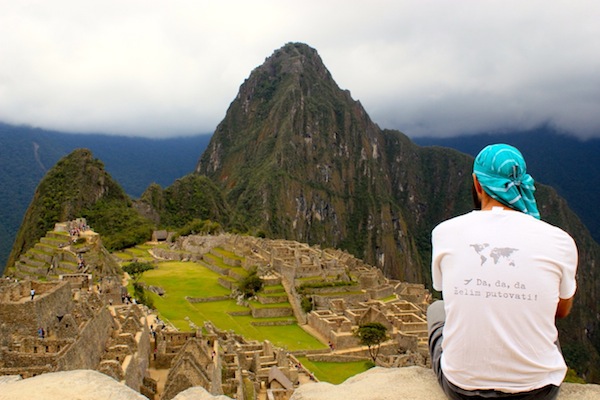
One item you can’t travel without?
My little sheep. This sheep is my important travel companion. Why? First of all, I got it as a present from a very dear friend of mine, who knows me best. Second of all, I am also a sheep (or Aries): stubborn, impulsive, and enthusiastic. So in a way, she reminds me of who I am. Third, she wants to send out a message. Basically, she is a sheep, but she doesn’t listen to the shepherd, or follow the herd. She does what she likes — she travels with a smile on her face! She wants more people to experience that way of life, without borders, without fear.
Having all that in mind, it was logical that she joins me on my travels. Every now and then she gets lost and travels solo. One summer she wandered around Portugal, Spain, and France, and one time she left me in Kuala Lumpur, I had no idea where. But she always comes back to her favorite travel companion!
****Tomislav definitely has his own style of traveling. It’s something I don’t think I’d do (camping isn’t really my thing and I love museums too much to skip them), but he shows us that where there is a will, there is way andTomislav definitely has his own style of traveling. It’s something I don’t think I’d do (camping isn’t really my thing and I love museums too much to skip them), but he shows us that where there is a will, there is way and it is possible to travel for very, very little money . He’s lived in exotic places for a day for less money than most people spend on lunch! Take a page from Tom’s book and make it happen. Even if you don’t want to travel like him, he shows us that with a little creativity, any trip can be possible.
You can find Tomislav and all of his awesome adventures on Facebook, YouTube, TEDx, and his blog, tomislavperko.com.
Other Inspiring Stories
One of my favorite parts about this job is hearing people’s travel stories. They inspire me, but more importantly, they also inspire you. I travel a certain way, but there are many ways to fund your trips and travel the world. I hope these stories show you that there is more than one way to travel and that it is within your grasp to reach your travel goals. Here are more great contributors to the forums:
We all come from different places, but we all have one thing in common: we all want to travel more!
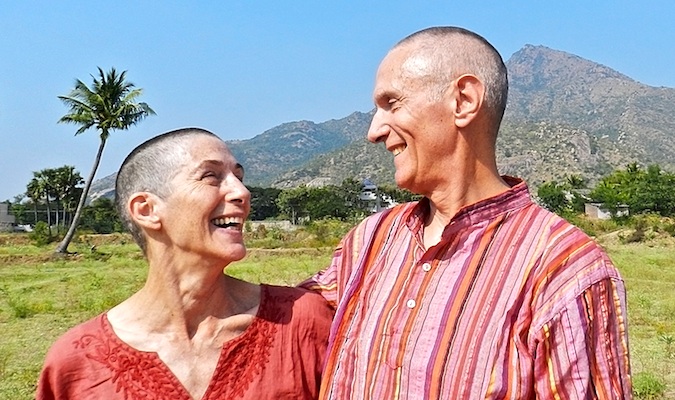

 How did you save money for your travels?
How did you save money for your travels?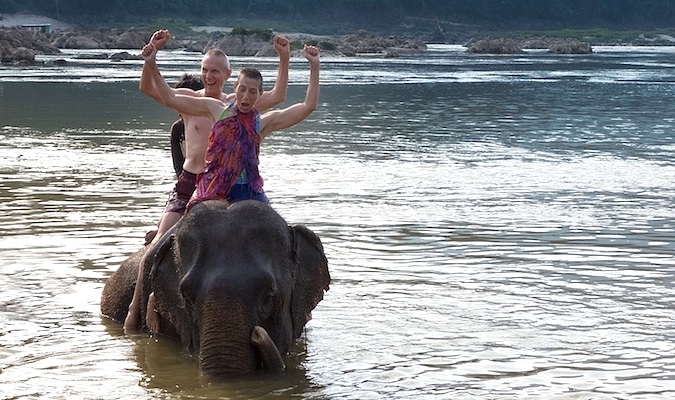
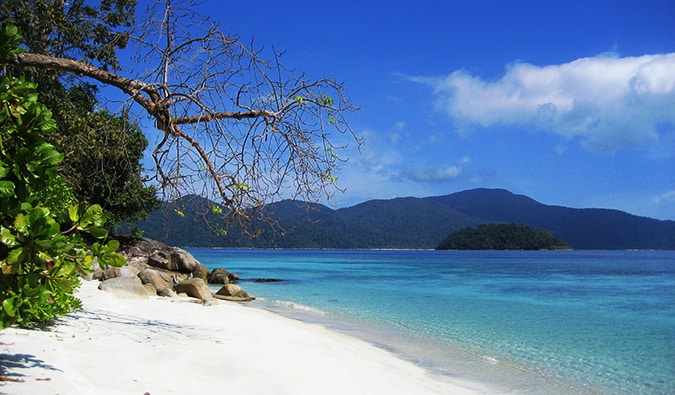
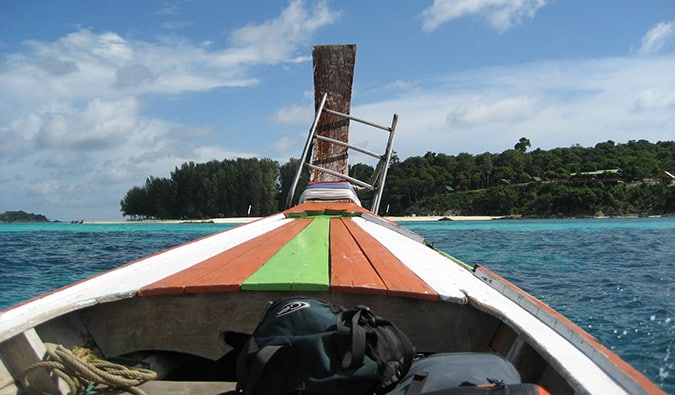
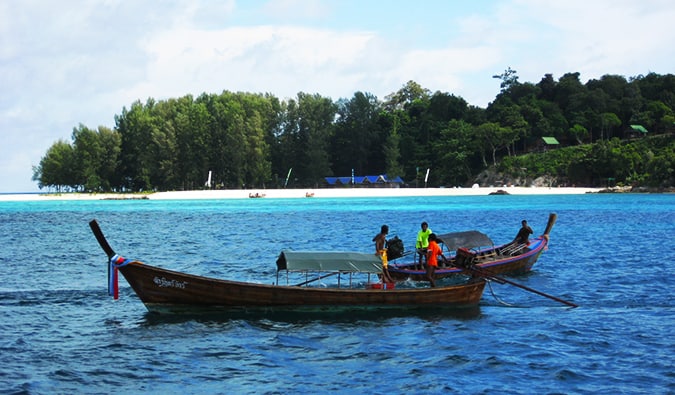
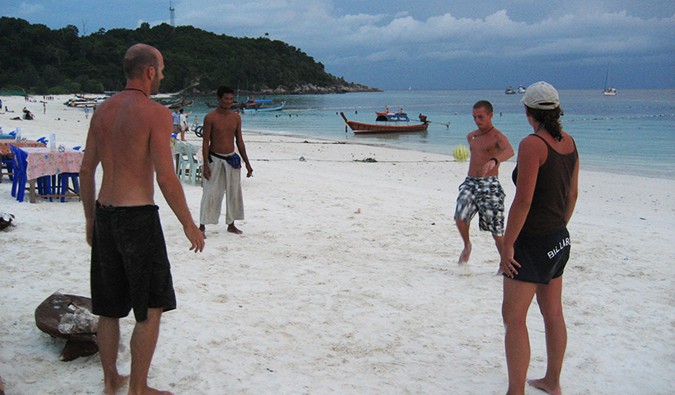
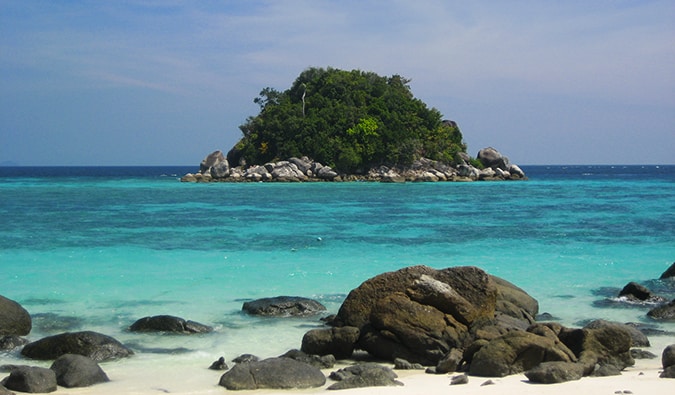
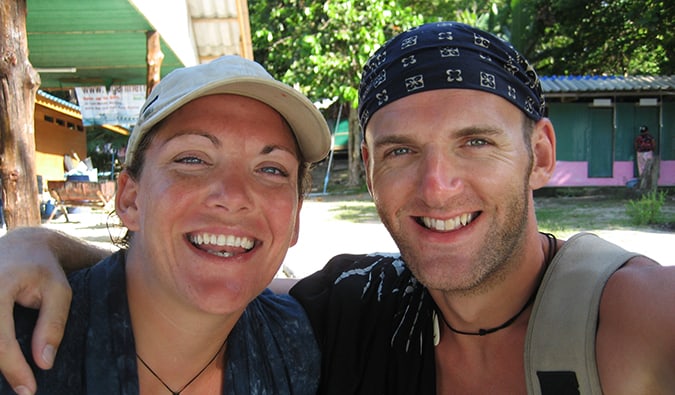
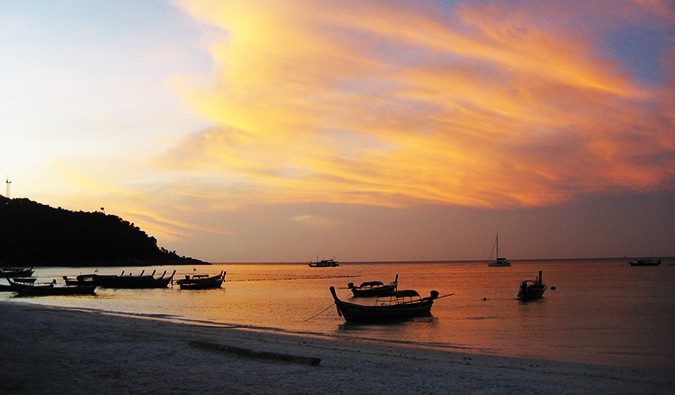
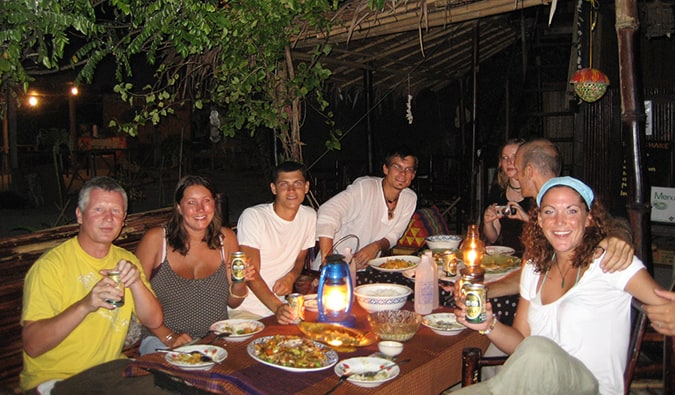
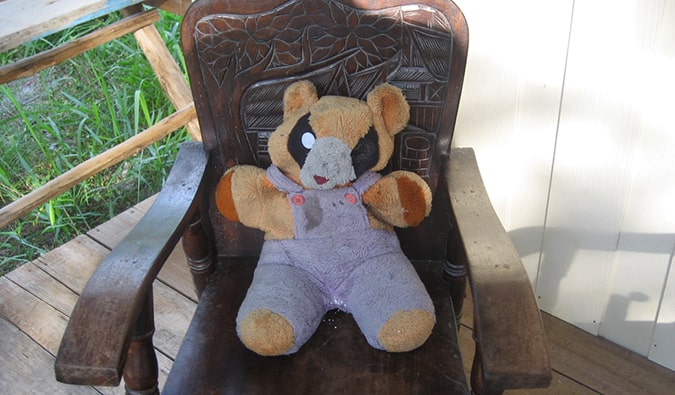
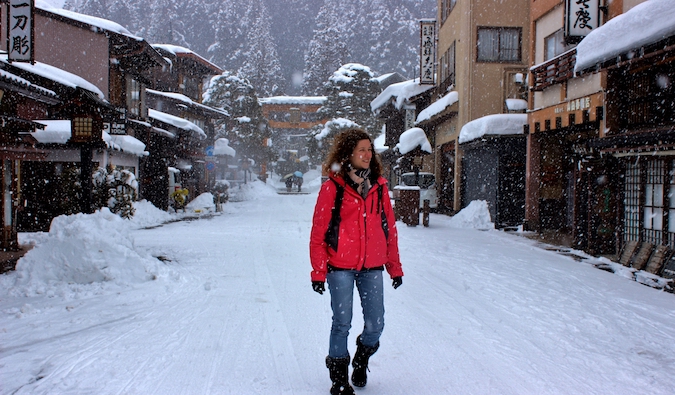
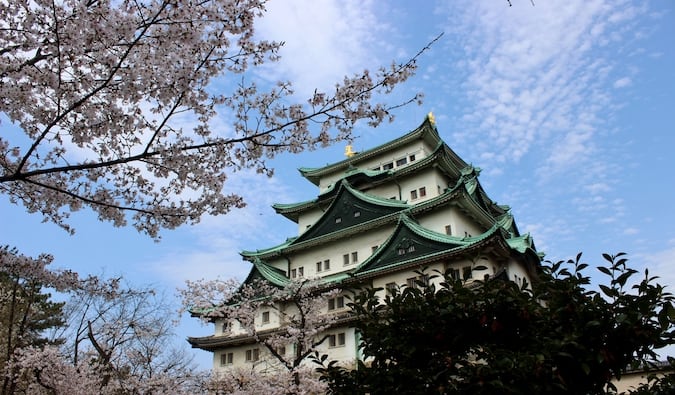
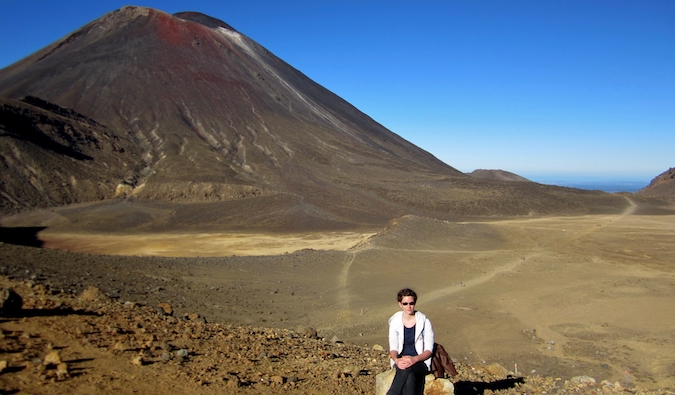







 Readjusting to life back home can be a challenge. I remember my first time coming home: I had major culture shock. I remember the supermarkets just feeling so big. And the stores. And the meal portions. (We have such big meals here in the States!) Plus, most of my friends couldn’t relate to my feeling of unease. It was a challenge going from always being on the move to suddenly doing the opposite. (Clearly, I didn’t cope. My solution was to keep traveling!)
Readjusting to life back home can be a challenge. I remember my first time coming home: I had major culture shock. I remember the supermarkets just feeling so big. And the stores. And the meal portions. (We have such big meals here in the States!) Plus, most of my friends couldn’t relate to my feeling of unease. It was a challenge going from always being on the move to suddenly doing the opposite. (Clearly, I didn’t cope. My solution was to keep traveling!)